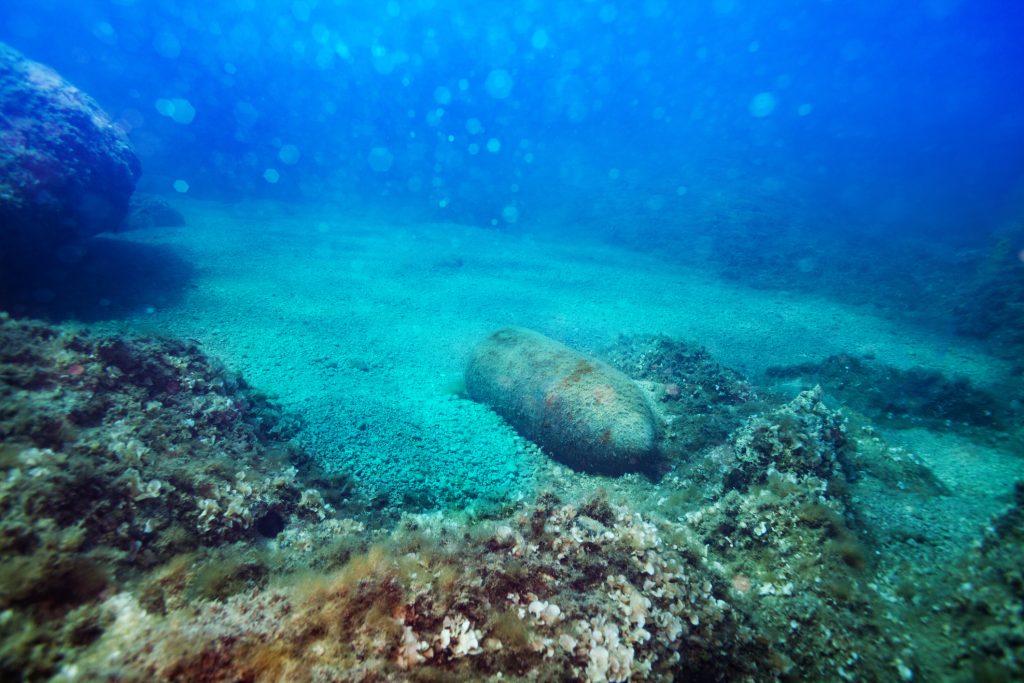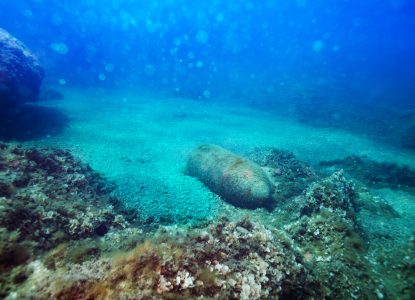By JoAnne Wadsworth, Communications Consultant, G20 Interfaith Forum
– – –
On May 30th, 2023, the G20 Interfaith Forum’s Anti-Racism Initiative, in cooperation with the G20 Interfaith Forum Environment Working Group, the International Academy of Multicultural Cooperation, and Purdue University Fort Wayne, held a webinar entitled “Spirited Seas: Science and Spirituality, an interfaith exploration of the environmental consequences of Deep Seabed Mining.”
Speakers included Rosa Koian, a journalist from Papua New Guinea; Rev. James Bhagwan, General Secretary of the Pacific Conference of Churches; Dr. Husna Ahmad OBE, CEO of Global One 2015; and Dr. Helen Rosenbaum, co-founder of the Deep Sea Mining Campaign. Arthur Dahl, President of the International Environment Forum, moderated the discussion.
Arthur Dahl began the discussion by introducing the issue of Deep Seabed Mining and talking briefly about his connection to the issue, as a marine biologist who has studied Pacific Island environments for half a century and has lived in the Pacific for 15 years. He then showed a short video excerpt of the movie “Blue Peril,” created by the Deep Sea Mining Campaign, which showed a graphic model of wastewater spread throughout the Pacific if mining were to commence in agreed-upon areas. He then invited each of the panelists to offer their thoughts on the subject.
Dr. Helen Rosenbaum
Dr. Rosenbaum used her time to present the science and logistics behind Deep Seabed Mining and explain why it is such a large threat to the environment. She said she founded the Deep Sea Mining Campaign after the first Deep Seabed Mining failure in Papua New Guinea, and now works to make the real threats of the practice known worldwide. The goal of “Blue Peril” was to make the science accessible to a wider audience, and the 15-minute film took three years of discussions with scientists and repeated revisions of computer modeling to produce.
She said that Deep Seabed Mining occurs on the deep sea floor, at varying depths. As the vast majority of the Pacific is in international waters, the International Seabed Authority holds jurisdiction and allocates areas of the Pacific to different entities. As the location of minerals and mining rights now stands, the world’s largest mining project could be starting in the very backyard of the islands, near Hawaii and Kiribati.
“No commercial mining has taken place yet. So, uniquely, we have an opportunity to stop this before it starts instead of just tweaking regulations to minimize impact. But that window is rapidly closing.”
There is very little change in the deep seabed environment—it is very dark, very quiet, and has extremely low temperatures and high pressure. German researchers dragged a sled over the seabed 3 miles down nearly 30 years ago, and when rechecked in 2015, the tracks looked perfectly fresh.
In Deep Seabed Mining, mining machines about two stories high would work in tandem, several at a time, nonstop for a 30+ year license period. As there are 17 licenses issued at the moment, Rosenbaum said the impacts of this occurring around the clock 24/7 are horrendous.
There would be a huge introduction of noise, dust, and light. The heavy machinery, crisscrossing the areas directed by robotic submersibles, would compact the seafloor and kill much that is under its treads. Barely-known deep sea ecosystems would be destroyed for millions of years, including tons of species we don’t even know yet which have adapted to these environments. Sediment clouds alone would have a huge impact, clogging gills, smothering mammals, and spreading toxic heavy metals.

In mid-May, a lab in Germany published research showing that the polymetallic nodules which will be mined are highly radioactive and exceed limits for human exposure by up to 1000x. These would be released into the waters during the mining process, ingested by organisms, and eventually work their way up the food chain to humans. The particles can be bioaccumulated and are extremely toxic when ingested. Current plans for mining involve discharging this radioactive wastewater about 1 KM beneath the surface.
It would be the world’s largest strip mining operation, with estimates saying that The Metals Company alone would destroy an area of seabed similar to the land area of all of Hawaii in its 30-year license period—and this is just the beginning of the predictions. Things like investigations into marine toxicology have yet to be done.
“What does the science say? The social and economic gains of Deep Sea Mining are unsubstantiated. And we don’t need Deep Sea Mining to transition to carbon neutrality. We can better recycle, build a circular economy, use new battery technologies, and clean up the operation of existing land-based mines.”
Rev. James Bhagwan
Rev. Bhagwan centered his comments around the emphasis in most religions to be responsible stewards of the Earth. He referenced a quote from the Psalms that he saw atop the Royal Exchange in London while joining the Pacific Climate Warriors to protest in connection with COP26: “The Earth is the Lord’s, and the fulness thereof.”
He said that creation started in the sea, and belongs to God—and that the Pacific people are custodians of that sea. Through the corporate capture of Christianity and other faiths, and the colonial capture of Christianity, the integral indigenous relationship and connection with land and sea and sky was lost in favor of neoliberal capitalism. Since then, many have fallen into the trap of deifying the accumulation of wealth.
“Economic wealth for very few at the expense of so many is not worth it. Deep Sea Mining is the latest in a long list of extractive and destructive industries being thrust into our beautiful ocean. Even at the experimental stage, Deep Sea Mining is already proving detrimental. It only serves those for whom the acquisition of wealth is the objective—not the wellbeing of people and planet.”
Rosa Koian
Koian focused her comments around Papua New Guinea’s ancestral relationship to the sea and the current threat posed by Deep Seabed Mining. As a journalist, she said she has worked in the Papua New Guinea community for many years on environmental issues, and that more than 80% of the nation’s people still live off of the land and sea. However, much of the proposed Deep Sea Mining will be happening “right in the belly of PNG.”
The people of PNG’s ancestral and cultural heritage is the source of their strength and teaches of rituals and practices connected to the environment. For example, by tradition certain areas of water are not crossed when the tuna are migrating. Many decided when to plant the yam seeds based on where the sea level was on the reefs. Special necklaces and carvings and art still demonstrate this close relationship with the environment and its teachings of peace, interconnectedness, and cooperation.
“Today, as we look at the surface of the sea, it looks like nothing but a flat sheet of water with nothing beyond our depths. But if you look beyond your feet, and listen beyond your ears, you will learn there is much, much more. We have a responsibility to care for those who cannot speak.”
Dr. Husna Ahmad OBE
Dr. Ahmad centered her comments on 3 points connected to faith and Deep Seabed Mining:
- The Islamic perspective on water conservation
- What she believes to be the Muslim perspective on Deep Seabed Mining
- What TODAY means
She said that water is an integral part of Islam, and is deeply embedded in the faith’s beliefs and customs. Quoting verses from the Quran, she said that water is one of the immense mercies from Allah and one of the three wonders of the natural world that all humans are entitled to.
In reference to the Islamic perspective on Deep Seabed Mining, Ahmad said that the answer is stewardship. As Muslims are expected to “live lightly on earth,” they should protect the blue heart of the planet.
As for action today, Ahmad advocated for a holistic approach that takes into account ethical, social, and environmental concerns. Even some of the big countries are clueless about the impacts of Deep Seabed Mining, and need to be informed.
“If we can halt exploitations by July 2023, then we have a chance. There are so many negative things coming out already. We must amplify our voices against this. 2 Billion people will be affected just by the exploration. We must learn from the wisdom of our faith and indigenous traditions.”
Conclusion
In conclusion, Dahl thanked all panelists and attendees, and invited all to learn more by watching the “Blue Peril” film (here) and visiting the Deep Sea Mining Campaign website.
– – –
JoAnne Wadsworth is a Communications Consultant for the G20 Interfaith Association and acting editor of the “Viewpoints” blog.


